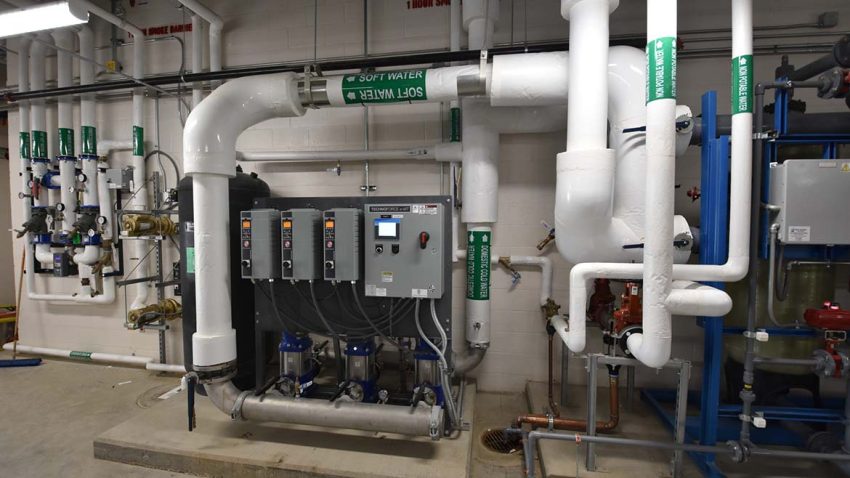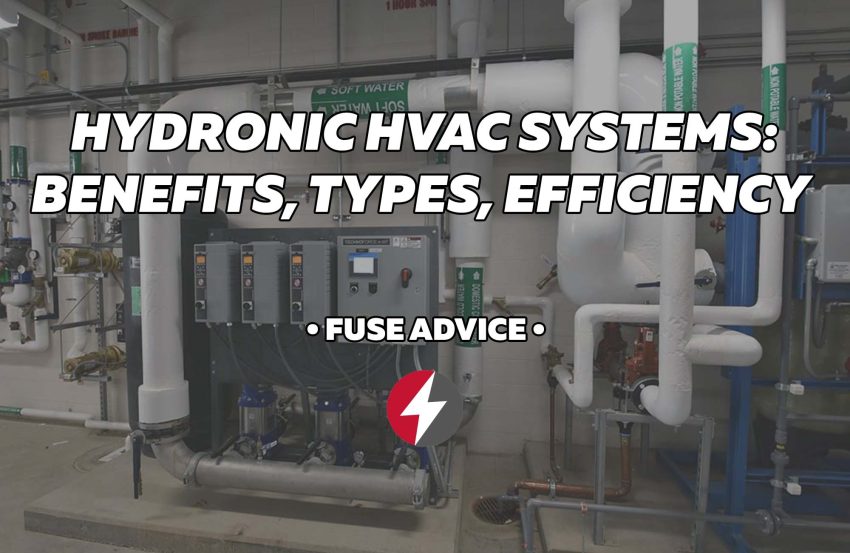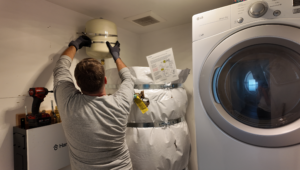Are you looking to upgrade a heating and cooling system in your house for something that’s way more efficient and environmentally friendly? In that case, a hydronic HVAC system could be just what you need. In this article, we will discuss the benefits, types, and efficiency of hydronic HVAC systems and why they will be the best choice for you either at home or business. Contact us today to learn whether this type of system is right for you.
What is a Hydronic HVAC System?
What is a Hydronic HVAC System? A hydronic HVAC system uses water to transfer heat instead of air. This system involves a boiler to heat water and a network of pipes for circulating this hot water to radiators, under-floor heating systems, or convectors. The heat is then given off into the room by radiating the heat from the water, giving a constant and comfortable warmth. Hydronic systems can be used during the cooling season by circulating chilled water.

Types of Hydronic HVAC Systems
There exist various kinds of hydronic HVAC systems appropriate for different needs. Main of them include:
- Radiant Floor Heating. This system circulates hot water through the pipes laid under the floor, providing even heat flow through the entire room. This will work great in a residential house where the need to keep your feet warm from the cold floor is of the essence. It can be used for new constructions or in old ones during renovations.
- Baseboard Radiators: In this, hot water is circulated through pipes located at the baseboards of walls. It can be termed as one of the older systems, common in most older homes but producing even heat.
- Hydronic Fan Coils: These are systems for heating air, whereby hot water is passed over a coil, after which it is blown through ducts into rooms. They are commonly used with air conditioning systems as an integral system to cater to heating and cooling functions.
- Panel Radiators Wall-mounted radiators, these units heat through a process of hot water pipes, which are located directly inside them. Available in several designs and sizes, they offer controlled, effective heating that coordinates with any aesthetic and layout of a room. For expert installation and maintenance, contact us with the best HVAC repair in San Jose.
Benefits of Hydronic HVAC Systems
There are quite a few benefits to be realized when hydronic HVAC system is utilized versus traditional air-based systems. Let’s get to some details:
Energy Efficiency
A hydronic system is typically more energy efficient than a forced air system. This is because water is a better heat transfer medium than air, so it takes less energy to maintain comfortable temperatures. This efficiency means lower bills, automatically translating to a reduced carbon footprint.
Steady and Equable Heating
Hydronic system HVAC will continually heat evenly without drafts, like with forced-air systems. This makes the house much more comfortable because it lets off soft and even heat rays.
Low Operating Noise
These systems run much quieter than those based on air, which usually generate noise from fans and air movement. Quiet Operation This hydronic system will make a home more comfortable with its silent operation.
Improved Air Quality
As hydronic systems do not move air around, they, therefore, do not distribute dust, allergens, and other particles floating in the air : the systems contribute to better air quality in the room, which is very advantageous for those suffering from allergies and respiratory problems.
Versatility
This is a flexible heating and cooling system. They can be used for integration with various heat sources, which can be boilers, solar panels, or heat pumps, to achieve sustainability and efficiency.

Comparing Hydronic HVAC Systems with Other Systems
When comparing hydronic HVAC systems with other solutions for heating and cooling, several factors make them distinguished, which include:
Energy Efficiency: Hydronic systems are generally more efficient because they possess the super-efficient capabilities of transferring heat to water.
Comfort: Hydronic systems are more comfortable since the heat is evenly distributed, which avoids cold spots and drafts.
Noise Levels: For one, hydronic systems have a noise level much lower than forced-air systems because there are no moving parts in the equation, and secondly, because there is no air circulation.
Air Quality: Hydronic systems preserve more excellent indoor air quality by not circulating air, thereby reducing the dispersion of allergens and dust.
Installation and Cost Considerations
Upfront costs for installing hydronic HVAC systems are sometimes higher than in conventional cases. Still, saved long-run energy bills and increased comfort and air quality will probably be enough to justify the installed price. FUSE would encourage working with experienced professionals who can ensure proper installation and maintenance. The first cost is a little bit variable, as it will depend on the system type and installation complexity, but the value from energy savings and increased comfort is very high.
Case Studies and Real-World Applications
Hydronic HVAC systems have been effectively installed in different environments, from residential to large buildings. For instance, in CA, many homes have already transferred to a hydronic system to ensure that their system will save them massively on energy costs and for comfortability purposes. In other cases, significant office buildings in San Jose have installed a hydronic system HVAC to offer continuous heat and cooling around the various floors in the building. These applications show how HVAC hydronic systems can be adaptable and efficient for many environments.
Conclusion
There are so many gains of a hydronic HVAC system – it is energy efficient, smooth, comfortable for heating, silently operational, and enhanced indoor air quality. One is, therefore, advised that if you live in San Jose and its environs, to check on HVAC installation in San Jose to have a face-lift to your heating and cooling system, which should ensure that it is a hydronic solution. Contact FUSE today to find out how a hydronic HVAC system can improve the comfort of your home or business—dial up (669)666-9219 or write and email to support@fuseservice.com.






